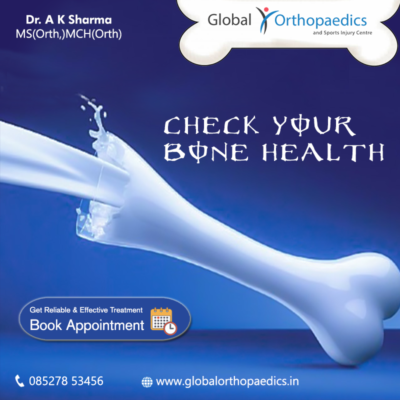
How do your bones grow, and what happens to them with age?
You depend on bones and joints to support your body and assist you to travel and explore the world.
What bones are made of?
Bone is densely full of flexible fibers (termed collagen), hardened by calcium and phosphorus. They’re built to face up to high stress from activities like walking, running, cycling, and jumping.
How bones change as you grow?
A bone may be a living tissue that continually renews itself. “Your skeleton is new every 10 years,”
In childhood and adolescence, bone buildup outpaces bone removal or loss.
In your early 20s, the density of minerals in your bone’s peaks. Your bone mass may stabilize or start slowly declining as bone loss overtakes bone buildup.
What happens as you age?
Natural bone loss accelerates at mid-life. This is often very true for menopausal women, ages 55 to 65, as levels of protective estrogen decline.
“For men, the loss is more gradual because testosterone declines slowly.”
But by age 65, the speed of bone loss evens out for men and ladies.
For the remainder of your life, bone mass gradually wanes.
When do bones start to thin?
If bone thinning makes your bone density drop below average, you’ve got osteopenia. This silent problem usually causes no symptoms.
“However, it’s important to recollect that the majority fractures occur in patients with osteopenia — so early identification, prevention, and treatment are important.”
If your bone thinning becomes severe, you’ll be diagnosed with osteoporosis. You’ll develop symptoms like back pain, a hunched posture, and fractures.
How to safeguard your bones?
But you’ll take steps to stay your bones strong and healthy. Here’s how:
1. Let food fortify your bones. Eat foods rich in calcium and vitamin D.
2. Do weight-bearing exercise. “Heel-strike activities, like walking, stimulates the new bone formation.”
3. Avoid smoking. Smoking will lower your estrogen levels. “It’s also toxic to your cells.”
4. Get DEXA (DXA) tests. Women should get DXA bone density tests starting at age 65 and men starting at age 70. “If you’ve got clinical risk factors for bone loss or fracture, you’ll need DXA earlier.”
Take medication, if needed. If you’ve got osteopenia or osteoporosis, certain medications can slow bone loss.
6. Lookout of other health issues. Take care of your thyroid disorders, parathyroid disorders, and the other health condition that can affect your bone density.


